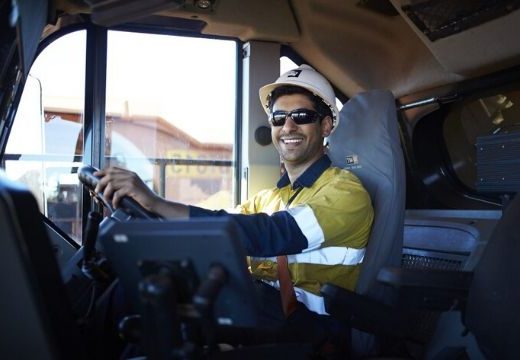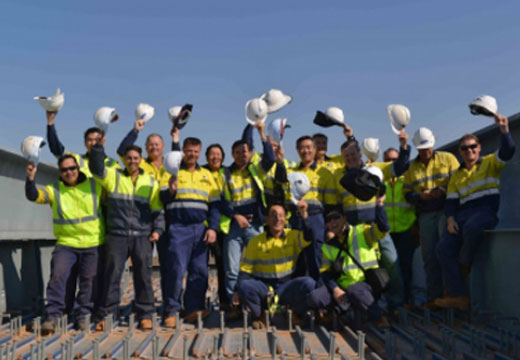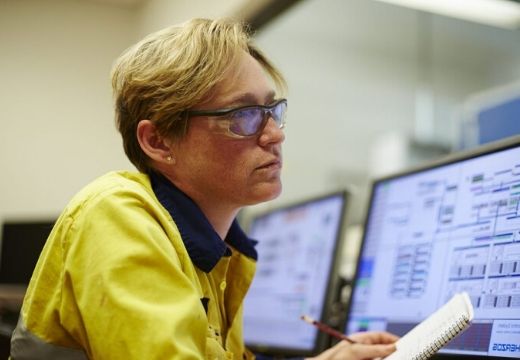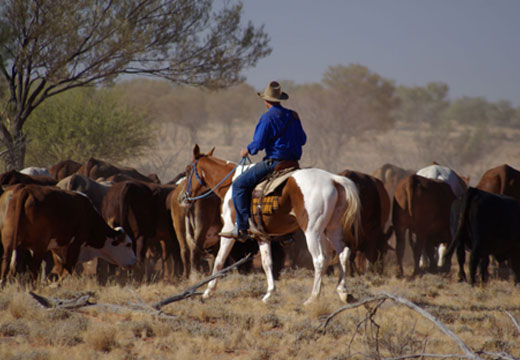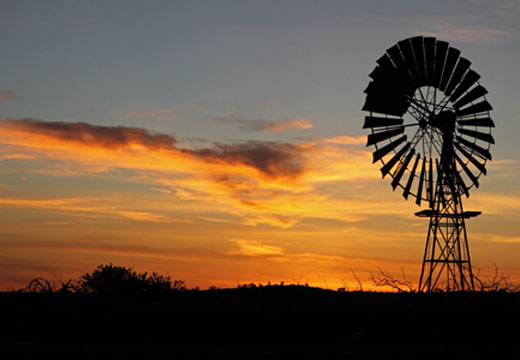AUSTRALIA’S richest woman, Gina Rinehart, is warning that rushing to reduce greenhouse emissions without proper costings could imperil family farmers and cost taxpayers “billions in subsidies”. The mining and pastoral tycoon has outlined her particular concern that family farmers who have endured years of drought, bushfires and Covid-19 do not have spare cash, so cannot afford to invest to change to renewable energy. Mrs Rinehart said costings should be the first priority and urged the Federal Government to “stand firm” until these had been properly assessed and made public.
Read moreTimely call to arms for Libs to take the tough decisions
The book Australia Tomorrow’s just launched. Please find a few short excerpts below from Mrs Gina Rinehart’s included essay.
“Agriculture, mining, small businesses, investment and defence are the keys to our nation and our future,” Rinehart observes. “We need our government to stop making decisions influenced by the media of the moment and instead act to make the bold decisions our country needs.” Focusing on the need to eliminate red and green tape, Rinehart reveals her Roy Hill iron ore mine was forced to comply with 4000 pieces of regulation before construction could begin – yes, 4000. The mining billionaire also takes a powerful stand in support of our veterans, slamming their treatment at the hands of government, and showing displeasure at the handling of war crimes allegations. “Given all the serious challenges we face as a country, it was shocking for many good Australians to see the Defence Department order our military to divert to holding rainbow teas and to strip 3000 of our most highly trained military personnel of their medals,” Rinehart writes.
Infrastructure key to regional boom
The report says improving regional connectivity is critical to unlocking additional growth and backs a staged investment in transport infrastructure aimed at supporting economic diversification and sustainable population growth. It says this strengthens the case for modern, fast rail improvements. Mass movements of people from cities to towns such as Margaret River in Western Australia and Orange in NSW – both as holiday destinations and places of residence – had sparked huge demand for housing and services. The report says a more coordinated infrastructure policy would meet specific needs by drawing on each region’s competitive advantage, facilitate growth and encourage a better balancing of population growth between cities and regions.
Read moreReform overhaul to put rocket under productivity
With the country already experiencing a peak in major projects, Infrastructure Australia chief of policy and research Peter Colacino said the industry needed to reform in order to meet the looming pipeline of projects. “The industry can’t deliver the scope of work unless it adopts the change,” he said. “We’ve pointed to things that are proven, have delivered productivity gains elsewhere, are well evidenced in terms of what we’re putting forward. These aren’t unproven solutions.”
Read moreTaking the big smoke to the bush
“Not by a decentralisation policy where we shift public servants from government agencies out into country towns. But where we flip that model, identify the unique competitive advantage of the region, and use that to attract people … but also businesses who are keen to relocate if we get the infrastructure piece right.”
Read more‘Payroll tax squeezes the life out of sector’
On a federal level Mr Tan said that Treasurer Josh Fydenberg needed to engage with the sector and be guided by them on policy. “Let us show you where the opportunities are and how policy can really help the sector but also very much harm the sector and let us give you some ideas that can help the sector and the economy and the country all at the same time,” he said. “We are trying to solve big problems and sometimes the rules aren’t very clear about what you can and can’t do.”
Read moreMAKE BRISBANE SHINE
But Ms Rinehart warned that in the lead-up to Brisbane hosting the world’s biggest sporting event in 2032, governments needed to cut red tape to ensure teams and facilities were ready in time. “I hope our governments now take the bit between their teeth and realise 10 years time is a relatively short time to prepare Queensland for the Olympics, and grasp this opportunity to ensure Queensland shines,” she said. “To do this we must cut government tape to welcome significant investment and businesses, improve airports, improve marinas, build exciting new tourist facilities and accommodation, to really show Queensland and Australia as a must-repeat visit destination.”
Read moreBrickworks slams IMF carbon tax
“(Australian governments) are into the rule book to try and find out how they can stop you doing what you want to do, or try and delay you, whereas in America, representatives of the governor will come and see you and ask you how they can help,” he explained.
“We need to be prepared to relax the regulations so companies can function. It’s just too onerous at the moment, and very difficult for companies to invest in Australia,” he added.
Approvals reform can protect natural assets & boost economy
The Minerals Council of Australia estimates that the EPBC process can cost companies developing greenfield resource projects up to $47 million every month. Professor Samuel recommended the job-destroying duplication should be addressed by improving, strengthening, and streamlining the capacity of the Federal Government to delegate approval functions to State governments.
It’s time to get on with reforms to better protect natural assets and deliver a needed boost for our economy.
McGowan backs PM over red tape Bills
Mr McGowan said his government had called for proposed changes 18 months ago.
“We support this legislation and WA continues to work with the Commonwealth to progress a bilateral agreement for approvals which will maintain environmental standards and reduce red tape,” he said.
“Since (originally calling for the changes) the State has been implementing initiatives to remove red tape while retaining the highest environmental standards for all applicants.”
